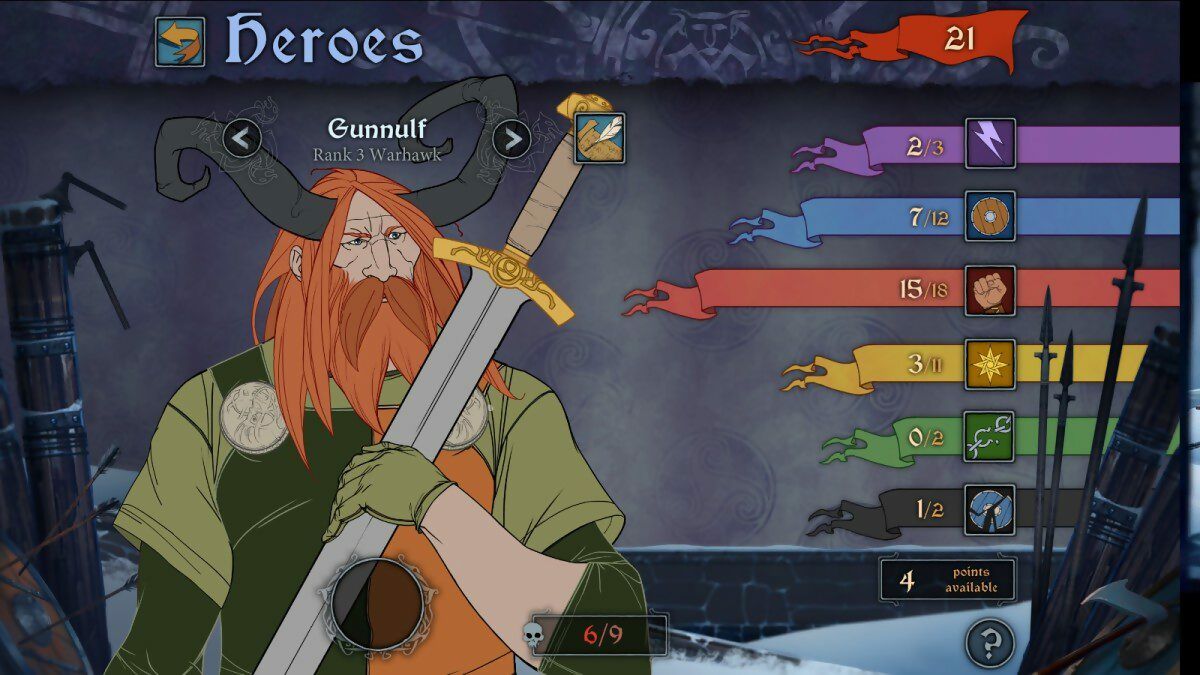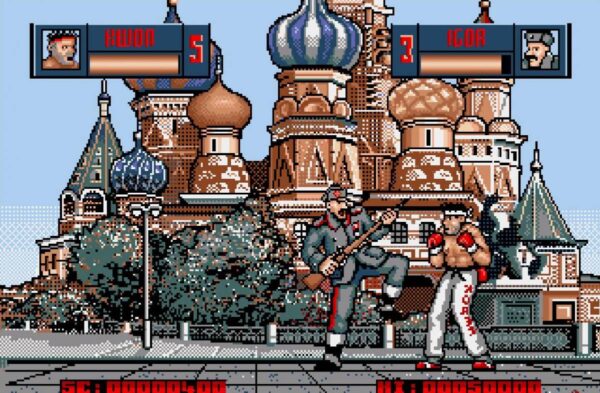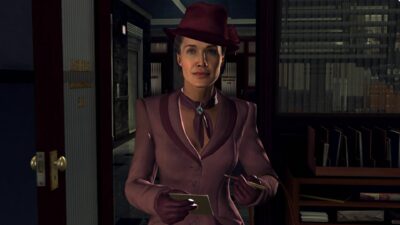
Much like The Lord of the Rings, The Banner Saga trilogy charts a species-diverse group’s splintered journey across a detailed fantasy world, as the forces of world-ending evil close in. But this time you play as each of the lead characters, making decisions which will change the course of that journey permanently, determining who lives, who dies, and what they experience in-between. Then, at the end of all three instalments, if the sum of your decisions is found wanting, you’ll fail to stop the world ending. So you better choose carefully.
The reason The Banner Saga’s choice-points are so constantly engaging is because almost every one of them has some sort of implied stakes. A few drunk men and a wagon of supplies tumble off a cliff. Do you move on? Do you order a group of warriors to start constructing a winch to retrieve the supplies and bodies? Or do you send a hero down there to haul it all back up? Moving on may lower morale and sacrifice the supplies, but could save time.
The winch will probably cost time and resources, and you may get attacked while building it, but it seems a safer way to retrieve things. Send your hero solo, and he may succeed, but it also leaves him vulnerable at the cliff’s base and there are giant bears in the area, so you could lose him permanently. There’s always a myriad of competing potential good and bad outcomes to consider to a given course of action, and you never know how it’ll play out. There’s almost no randomness here, but the writers don’t shy away from unexpected consequences.
This is all no easy feat, and is specifically enabled by the writing’s tightly woven relationship to a variety of interconnected gameplay features, such as chess-like hero battles; currencies like ‘Renown’, supplies, and your caravan’s supply of people; and more abstract systems like time limits and your party’s level of morale. Take a look at the diagram opposite to get a taste of the ways in which the story’s choices are given weight and consequences by a supporting cast of game mechanics.

A classic The Banner Saga life-or-death choice. It’s asking a moral question, and answers will have both expected and unexpected effects on other mechanics.
None of these stakes would be worth a damn if The Banner Saga didn’t feature characters worth saving. It’s all a complex way of determining one thing: who lives. Overspending Renown on Items might mean running out of Supplies, which lowers Morale, in turn weakening your Heroes in battle, leading them to get Injured, which means wasting Time recovering, which may result in the bad guys catching up and characters dying. If you didn’t care about the characters and their goals in the first place, it wouldn’t matter. But my takeaway is this: if writing a lengthy interactive fiction, consider adding a small web of different narrative ‘currencies’ and gameplay resources, and at least some basic relationships between them. Then, once good characters are introduced, your handful of interlocking mechanics will mean that, by liberally sprinkling resource or currency consequences onto outcomes, every choice can be a subtle, nuanced, and engaging dilemma.

Banner Saga relationships
The Weave
The diagram above is the sum of my investigation, and is worth reading to appreciate the complexity this game pulls off. Down the left side, we have various gameplay features, such as Heroes, Battles, Supplies, and Time. Each feature is followed by a description of what it is and/or how it relates to other features. On the right, we have a node representing the game’s narrative choices. But the really interesting part is what happens between the features and the story, so I’ve mapped all the relationships out and labelled them with what can happen. Each feature has two arrows describing its relationship with the story: one going from left to right, showing how the feature can affect the story and what choice options are available; and one going from right to left, showing how narrative decisions made by the player can affect that feature.





